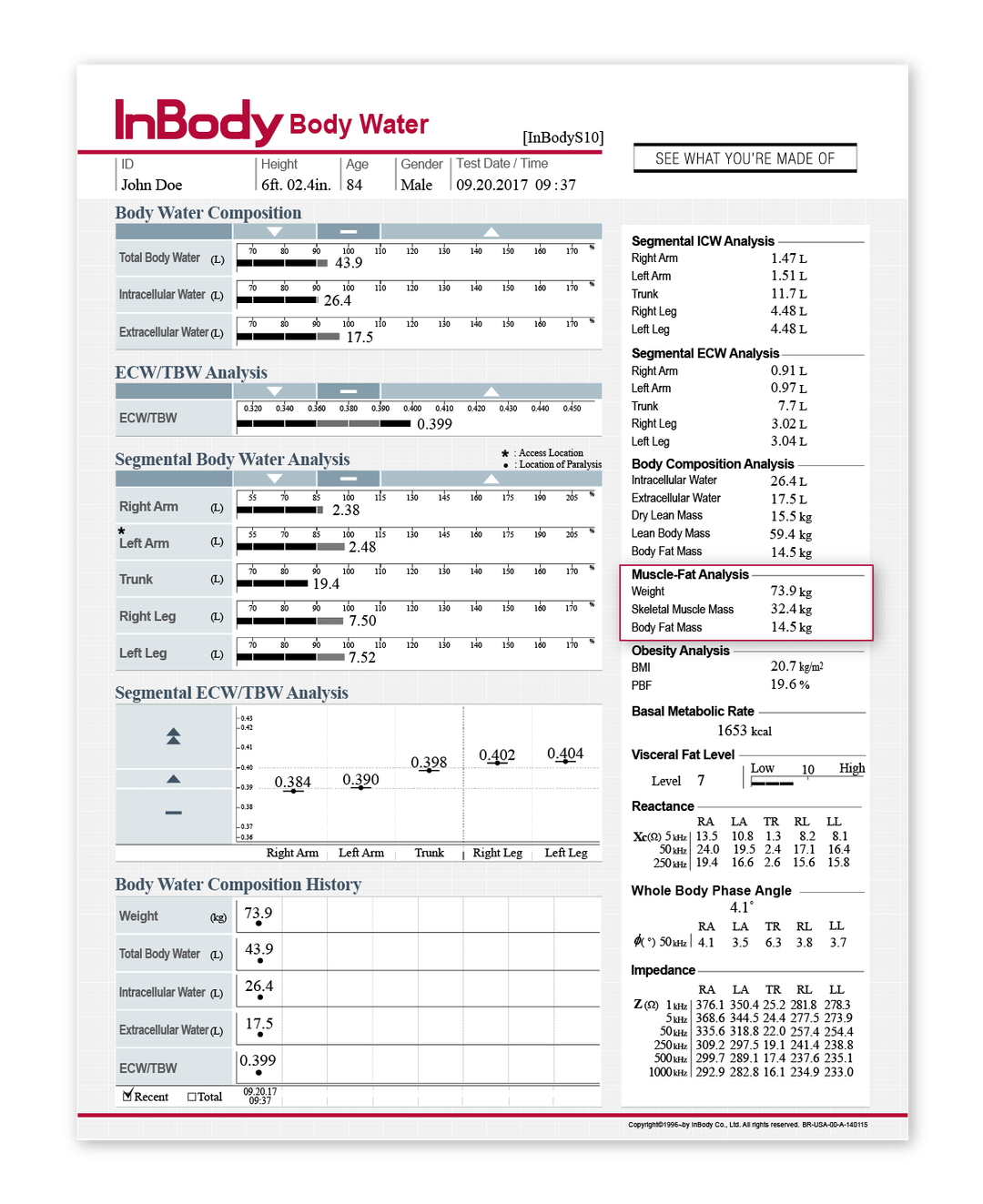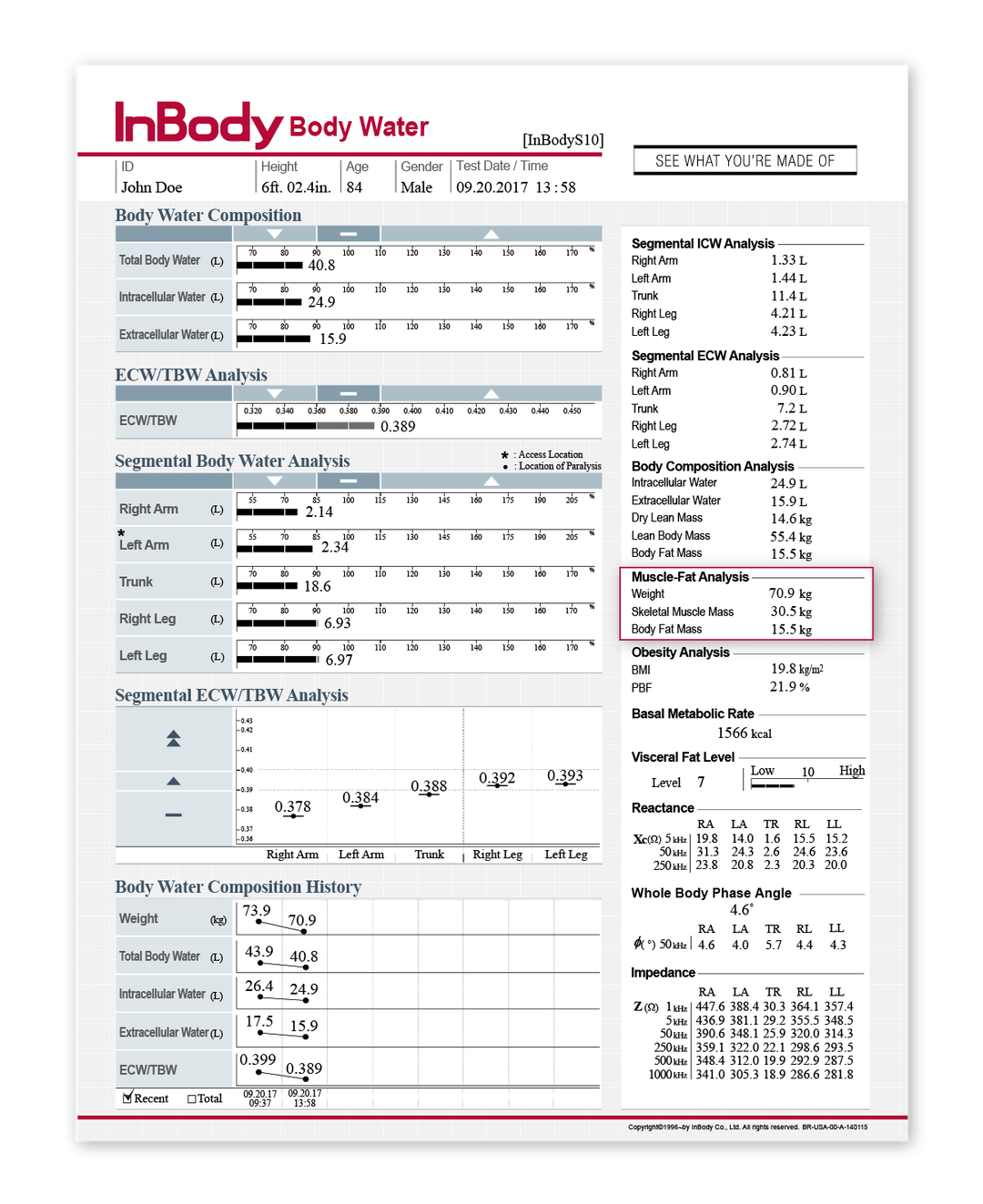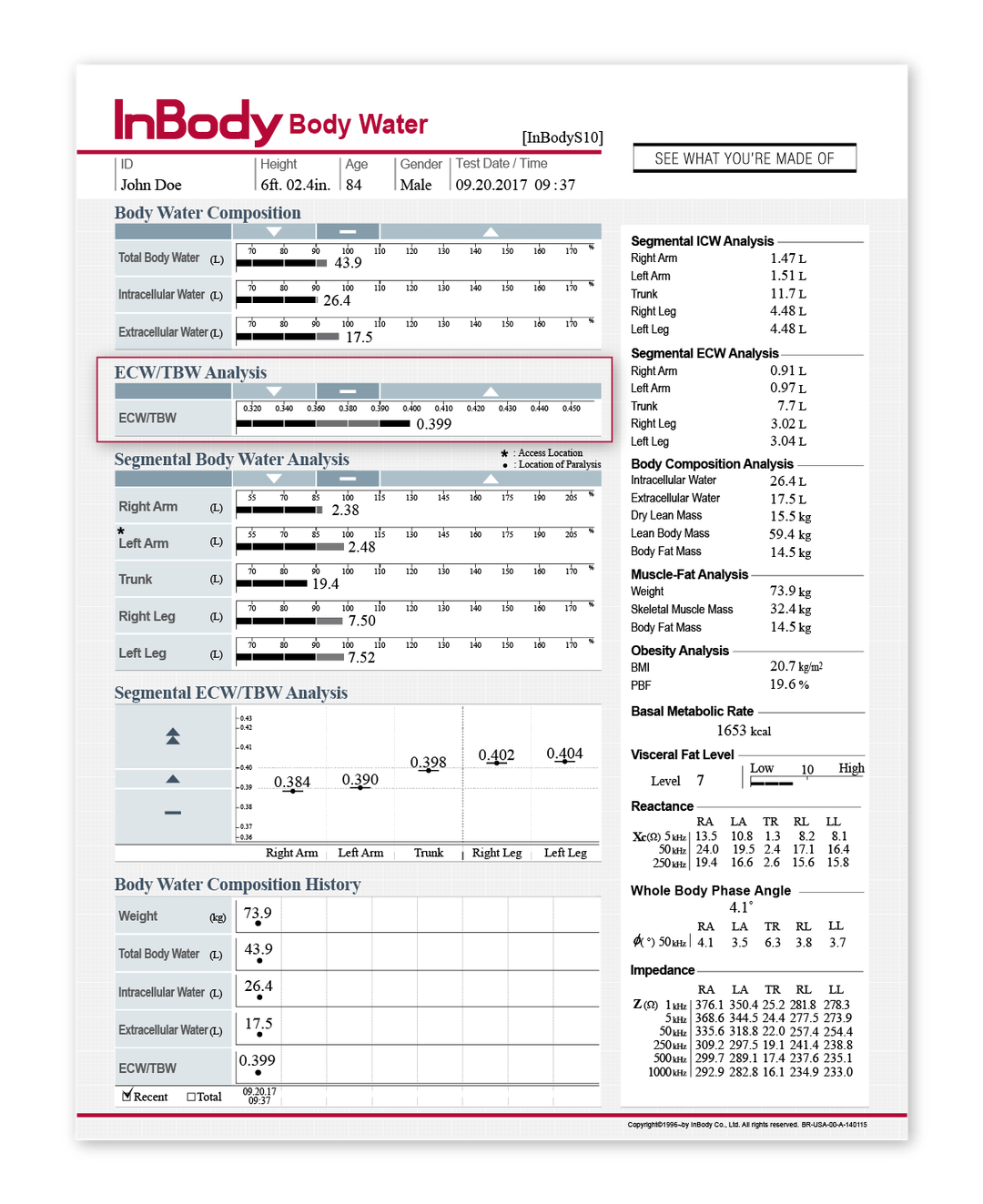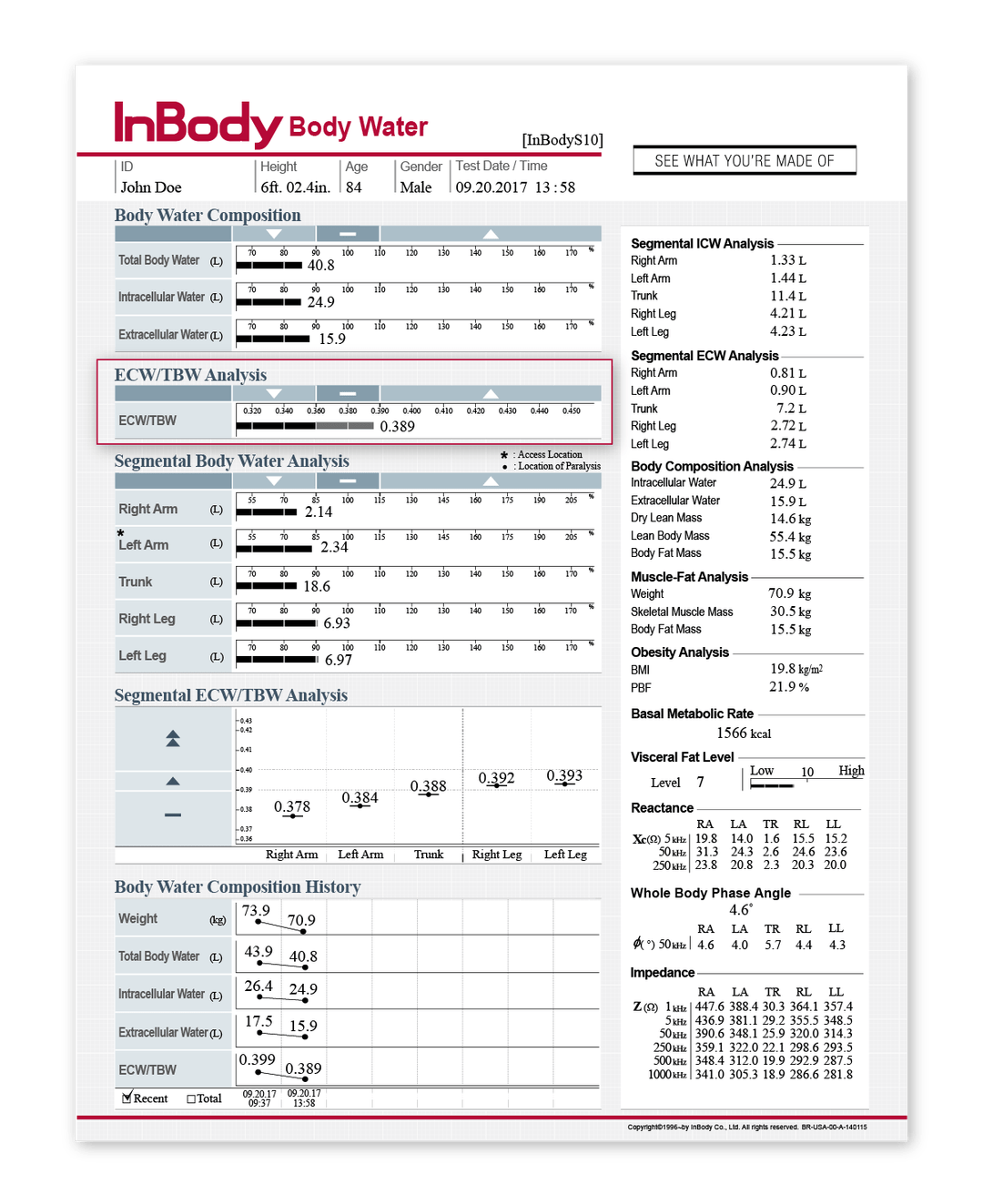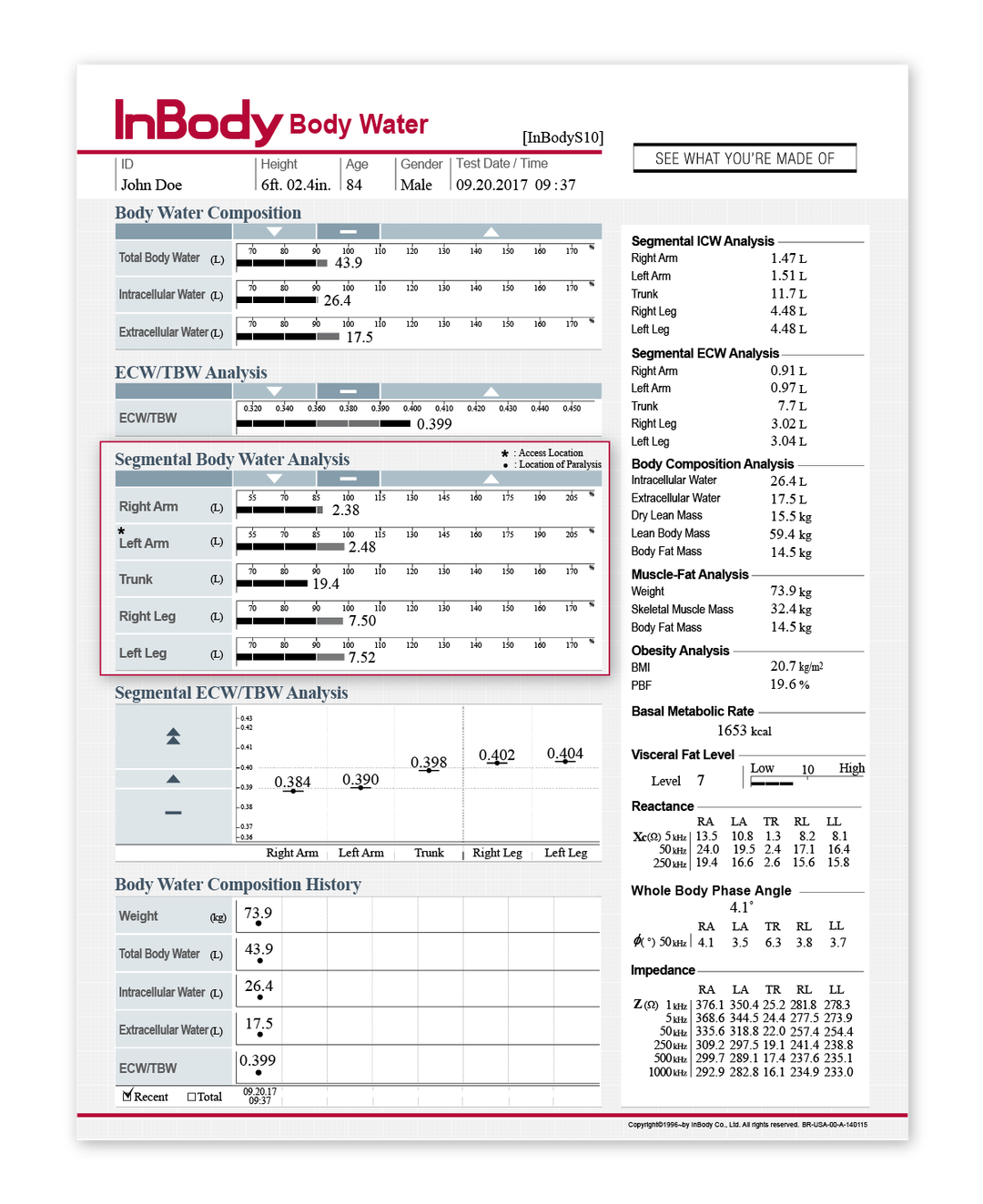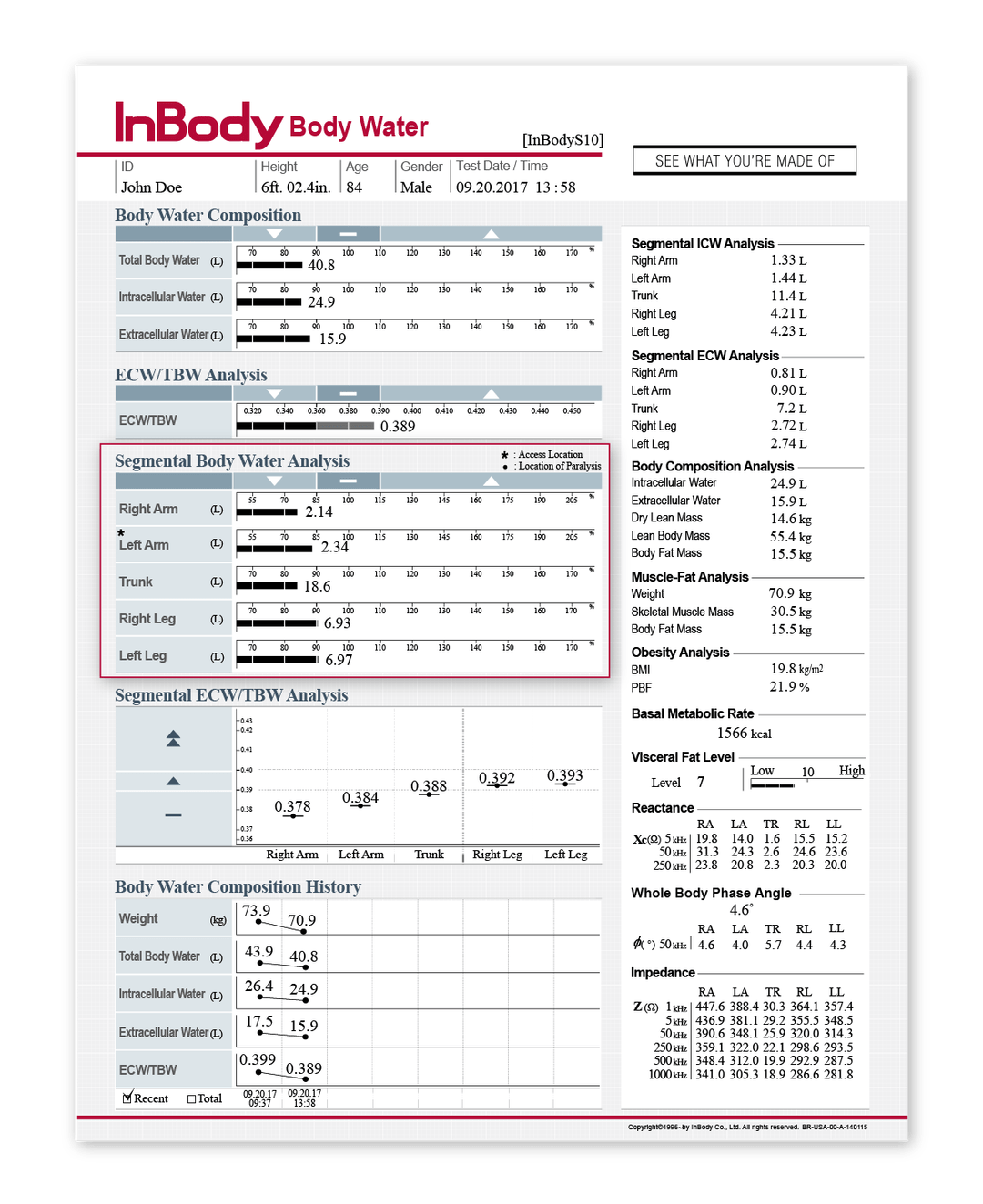ECW/TBW ANALYSIS
Increase success of dialysis treatment and long-term outcomes
Doctors rely on indirect measures of fluid retention to determine how much fluid to remove or when to stop dialysis treatments, often leading to intradialytic complications. Direct fluid measures increase the precision with dialytic treatments and establishment of goal weight for patients.
By understanding changes in body composition and the accumulation of fluids during the interdialytic period, physicians can determine how much water to remove and achieve an appropriate goal weight. Setting goal weights based on objective measures of body composition and fluid levels, physicians can avoid interdialytic complications such as hypo- or hypertensive episodes, increasing the success of dialysis treatments. Relieving these symptoms in patients leads to better long-term outcomes and attendance of appointments.


